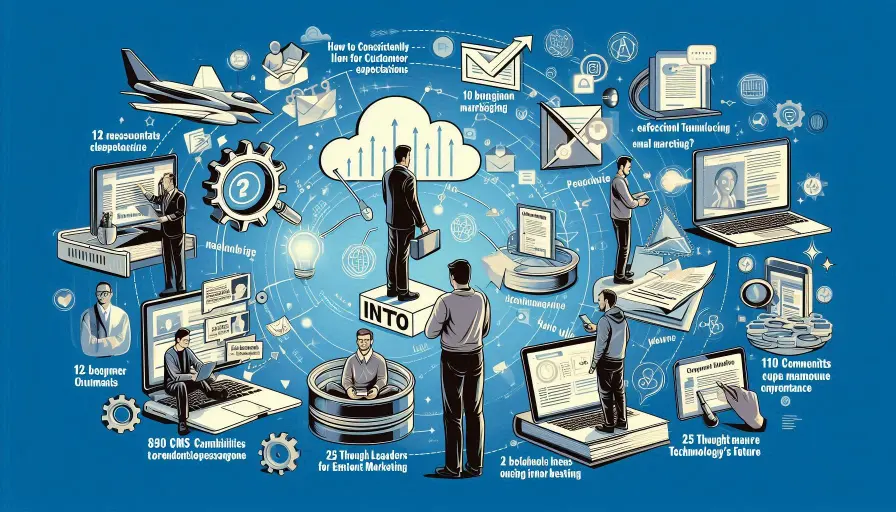Content marketing has evolved from a supplementary strategy to a central pillar of brand communication. Whether you’re a startup, an eCommerce brand, or a multinational enterprise, your ability to create, manage, and scale digital content can make or break your online visibility. At the heart of this operation lies the Content Management System (CMS) — the unsung hero that quietly empowers your marketing machine.
Choosing the right CMS is no longer just a technical decision; it’s a strategic one. A robust CMS doesn’t merely help you publish blog posts; it enables you to optimize SEO, manage workflows, personalize content, integrate with essential tools, and glean insights from real-time data. In essence, your CMS should be your marketing co-pilot.
This article explores 10 critical CMS capabilities that can significantly elevate your content marketing performance. From intuitive editing tools to built-in analytics and omnichannel publishing, these features are essential for marketers aiming to stay competitive and relevant in an oversaturated digital landscape.
Intuitive Content Editing and Workflow Management
A user-friendly CMS must simplify the content creation process. This includes WYSIWYG (What You See Is What You Get) editors, drag-and-drop interfaces, and pre-built templates that make it easy for non-technical users to produce quality content. Additionally, robust workflow management features like version control, content approvals, and scheduled publishing ensure a streamlined editorial process.
These capabilities empower marketing teams to collaborate efficiently, reduce time-to-market, and maintain brand consistency across all content pieces. Without these functions, even the most compelling marketing message can get lost in operational inefficiencies.
SEO Optimization Tools
SEO is at the core of successful content marketing, and your CMS should support that mission. Built-in SEO tools help optimize meta tags, headers, URLs, and alt texts. Advanced systems may offer real-time SEO scoring, keyword suggestions, and schema markup integration.
These tools not only improve your site’s visibility on search engines but also ensure your content aligns with the latest algorithm updates. By automating much of the on-page optimization work, marketers can focus more on strategy and creativity.
Personalization and Audience Targeting Features
Modern consumers expect content tailored to their preferences. A capable CMS should allow for dynamic content personalization based on user behavior, demographics, and location. Features like content segmentation and smart recommendations help you serve the right message to the right audience at the right time.
This level of customization significantly boosts engagement and conversion rates. With AI-powered personalization engines becoming more common, a CMS that supports these capabilities gives your brand a competitive edge in delivering memorable user experiences.
Integration Capabilities with Marketing Tools
Content marketing doesn’t operate in a vacuum. A high-performing CMS must integrate seamlessly with your broader marketing stack, including CRM systems, email marketing platforms, analytics tools, and social media schedulers.
API accessibility, plugin support, and native integrations ensure that data flows effortlessly between systems, enabling a cohesive and data-driven marketing strategy. This integration reduces duplication of effort and enables real-time performance tracking across multiple channels.
Analytics and Performance Tracking
Understanding how your content performs is vital for continuous improvement. An effective CMS should provide built-in analytics or offer easy integration with platforms like Google Analytics and HubSpot. Features such as content heatmaps, scroll depth tracking, and bounce rate analysis offer invaluable insights.
These metrics help marketers identify what’s working and what needs adjustment, guiding smarter content decisions and optimizing ROI. Real-time dashboards can provide actionable data that empowers teams to pivot strategies quickly based on user behavior and trends.
Omnichannel Content Distribution and Scalability
With audiences spread across websites, mobile apps, social platforms, and email, omnichannel publishing has become a necessity. A strong CMS should support content distribution across multiple channels from a single dashboard. It should also be scalable enough to handle increasing content demands as your brand grows.
This ensures consistency in messaging and branding, regardless of the platform. Additionally, headless CMS architectures are gaining popularity for their ability to deliver content via APIs to any frontend, enabling more agile and scalable marketing operations.













